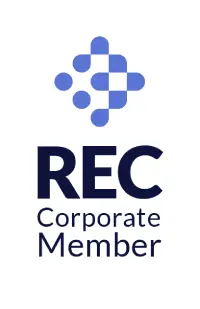“Should I take the OET or IELTS?” is one of the most common questions our students at Dynamic Health Staff ask. This decision is crucial for healthcare professionals aiming to work in the UK, as demonstrating English language proficiency is a mandatory step in the process. Both the IELTS and OET are recognized tests, but they cater to different needs and have distinct advantages and challenges. We will discuss the parallels and discrepancies between these two assessments in this extensive guide, along with the reasons the OET is a better option for medical professionals.
Key Differences Between IELTS and OET
| Feature | IELTS | OET |
| What is it? | The IELTS is a general English language assessment widely accepted in several English-speaking countries, including the UK, Australia, and New Zealand. | The OET is an English language assessment specifically designed for healthcare professionals. Initially targeted at Australia and New Zealand, it has been accepted by the UK’s Nursing and Midwifery Council since November 2017. |
| Scoring | Scored from 0-9. A score of 7 and above is required in Listening, Speaking, and Reading, and above 6.5 in Writing. | Scored from A to E, with an overall score of A or B needed to pass. |
| Test Time | 2 hours 45 minutes | Approximately 3 hours |
| Sections | 1. Listening: Listen to 4 recordings and answer questions. 2. Reading: Read three passages from journals and newspapers and answer questions. 3. Writing: Write an essay and describe a graph/data. 4. Speaking: Discuss general topics and respond to a task card. | 1. Listening: Part A – Take notes on a recorded patient consultation; Part B – Answer questions after listening to a healthcare lecture. 2. Reading: Part A – Fill in the blanks in four short texts; Part B – Answer MCQs based on two longer passages. 3. Writing: Write a follow-up letter, discharge note, or referral letter based on case notes. 4. Speaking: Role-play scenarios between a healthcare professional and a patient. |
Why Is the OET a Better Option for Medical Practitioners?
Suited to Your Profession: The OET is tailored specifically for healthcare professionals. Each section of the OET mirrors real-life scenarios encountered in healthcare settings. For instance, the speaking section involves role-playing between a healthcare professional and a patient, making it highly relevant and practical. This contextual relevance not only helps in demonstrating your English language proficiency but also provides insight into the professional interactions you will face in your workplace in the UK. Essentially, preparing for the OET is akin to preparing for your future role, thus serving a dual purpose.
Familiar Vocabulary and Terminology: The OET uses vocabulary and terminology familiar to healthcare professionals, providing an advantage in taking the test. In contrast, the IELTS covers a broader range of topics and vocabulary that may be irrelevant to your profession. By focusing on medical terminology and healthcare scenarios, the OET allows you to leverage your existing knowledge and experience, reducing the preparation time and increasing the likelihood of success.
Traditional Pen and Paper Test: For many, the traditional pen-and-paper format of the OET is more comfortable than computer-based tests. The speaking section involves interacting with a human examiner in a role-play scenario, which can be more natural and less intimidating than the IELTS speaking test format. If you prefer a more traditional approach to testing, the OET is a better fit.
Which is Easier: The OET or the IELTS?
The easier test depends on your proficiency and familiarity with the content. The OET is typically simpler if you are well-versed in medical terminology and healthcare knowledge. You may rapidly become familiar with the test format and content with basic OET training because it closely matches your professional experience. On the other hand, the IELTS is a broader English language assessment used by students and professionals across various industries. The topics and content covered are wider and sourced from diverse fields, making it more challenging for those not accustomed to such variety.
Real-life Scenarios in the OET
The OET is designed to test the language skills of healthcare professionals in real-life settings. Let’s delve deeper into each section of the OET to understand how it aligns with the daily tasks of healthcare professionals.
Listening: In the OET listening section, you will encounter scenarios such as patient consultations and healthcare lectures. These are typical situations you will face in your professional life. For example, you might listen to a recording of a doctor explaining a diagnosis to a patient or a medical seminar discussing the latest treatment protocols. This practical approach ensures that you are not only tested on your listening skills but also on your ability to comprehend and retain relevant medical information.
Reading: The reading section of the OET includes tasks like summarizing medical texts and answering multiple-choice questions based on healthcare-related passages. This section tests your ability to understand and interpret medical literature, which is a crucial skill for any healthcare professional. Whether it’s reading patient notes, medical journals, or treatment guidelines, the OET reading tasks reflect the kind of reading comprehension required in your daily work.
Writing: In the writing section, you will be asked to compose documents such as referral letters, discharge summaries, or follow-up notes based on the case notes provided. This task is directly relevant to the writing you will do in your job. By practicing this section, you not only improve your English writing skills but also get better at crafting clear and concise medical documents, which is essential for effective communication in healthcare.
Speaking: The speaking section involves role-playing with the examiner, who acts as a patient or a relative. This section is particularly beneficial as it simulates real-life interactions with patients and their families. The role-play scenarios help you practice explaining medical conditions, discussing treatment options, and providing reassurance, all while using appropriate medical terminology and demonstrating empathy.
The IELTS vs. OET: A Practical Perspective
To provide a clearer picture, let’s compare some practical aspects of both tests.
Preparation Time: Preparation for the IELTS can be extensive, especially if you are not familiar with the wide range of topics and vocabulary. You may need to spend significant time learning new words and practicing different types of questions that may not be relevant to your profession. In contrast, preparing for the OET can be more straightforward for healthcare professionals. Since the test content is aligned with your daily work, you can leverage your existing knowledge and experience. This targeted preparation can save you time and effort.
Relevance to Career Goals: The OET is specifically designed to assess the English language skills required in healthcare settings. Passing the OET demonstrates that you have the necessary language proficiency to perform effectively in your job. This can be a valuable addition to your resume and can increase your chances of securing a job in the UK healthcare sector. On the other hand, while the IELTS is widely recognized and accepted, it is a general test that does not provide specific insights into your ability to function in a healthcare environment. For healthcare professionals, the OET is more relevant and beneficial for career advancement.
Practical Benefits of OET Over IELTS
Focus on Healthcare: The primary advantage of the OET is its healthcare focus. Every aspect of the test is designed to reflect the tasks and language you will use in your profession. This not only makes the test more relevant but also makes the preparation more straightforward and meaningful. You are essentially studying for your job while preparing for the OET.
Real-life Application: The OET prepares you for real-life scenarios you will encounter in your job. From understanding a patient’s symptoms during a consultation to writing detailed referral letters, the tasks you practice for the OET are directly applicable to your professional life. This practical application means that your efforts in preparing for the test have a direct payoff in your job performance and readiness.
Reduced Anxiety: Many healthcare professionals find the OET less stressful than the IELTS because the content is familiar and relevant. You are not required to learn and remember a wide range of topics outside your field. This familiarity can reduce anxiety and increase confidence, both in preparing for and taking the test.
Tailored Preparation: The preparation materials and courses available for the OET are tailored specifically for healthcare professionals. This means that the resources you use will be directly relevant to your needs, making your study time more efficient and effective. At Dynamic Health Staff, we offer specialized training for the OET, ensuring that you get the most out of your preparation.
Preparing for the OET
Effective preparation for the OET involves a combination of understanding the test format, practicing the specific types of tasks you will encounter, and improving your overall English language proficiency. Here are some steps to help you prepare:
- Familiarize Yourself with the Test Format: Recognise how each section is organized and the kinds of questions that will be asked of you. You can take the test with confidence knowing this.
- Practice with Sample Tests: Use official OET practice materials to get a feel for the types of tasks you will face. This will also help you identify areas where you need to improve.
- Improve Your Medical English: Focus on expanding your medical vocabulary and improving your ability to understand and use medical terminology. This is crucial for all sections of the test.
- Take an OET Preparation Course: Enrolling in a dedicated OET preparation course can provide structured learning and expert guidance. At Dynamic Health Staff, our courses are designed to help you master the OET through targeted practice and feedback.
- Simulate Test Conditions: In order to adapt to the speed and pressure of the actual exam, take practice exams under timed conditions. This will lessen your test-day tension and help you efficiently manage your time.
Dynamic Health Staff: Your Partner in OET Preparation
At Dynamic Health Staff, we understand the unique challenges healthcare professionals face when preparing for the OET. Our comprehensive preparation courses are designed to provide you with the skills and confidence you need to succeed. Here’s how we can help:
- Expert Instructors: Our experienced instructors are well-versed in the OET format and the specific needs of healthcare professionals. We provide personalized feedback and support to help you improve.
- Tailored Curriculum: Our curriculum emphasizes the particular abilities and information required to succeed in the OET. We thoroughly review each section of the exam, offering focused practice and effective study methods.
- Adjustable Learning Schedule: We offer both in-person and online classes to accommodate your schedule and preferred method of learning. No matter what your circumstances are, our flexible options can help you maximize your preparations.
- Supportive Environment: We provide a warm and engaging learning environment that will keep you inspired and dedicated to your goals. Our team is dedicated to supporting you while you look for work in the United Kingdom’s healthcare system.
Wrapping Up
In summary, the OET is a superior choice for healthcare professionals seeking to work in the UK. Its focus on healthcare-specific content, practical application, and familiar terminology make it a more relevant and efficient test for demonstrating English language proficiency. By choosing the OET, you not only meet the language requirements but also enhance your readiness for professional interactions in your field.
Our mission at Dynamic Health Staff is to support you in realizing your professional aspirations. Our comprehensive OET preparation courses are designed to provide you with the skills, confidence, and support you need to succeed. Contact us today to learn more about how we can help you on your journey to a successful healthcare career in the UK.
For more information or any queries, call us at +91-9810017608 or email us at enquiry@dynamichealthstaff.com . We look forward to assisting you in every step of your journey to a rewarding career in the UK healthcare system.






